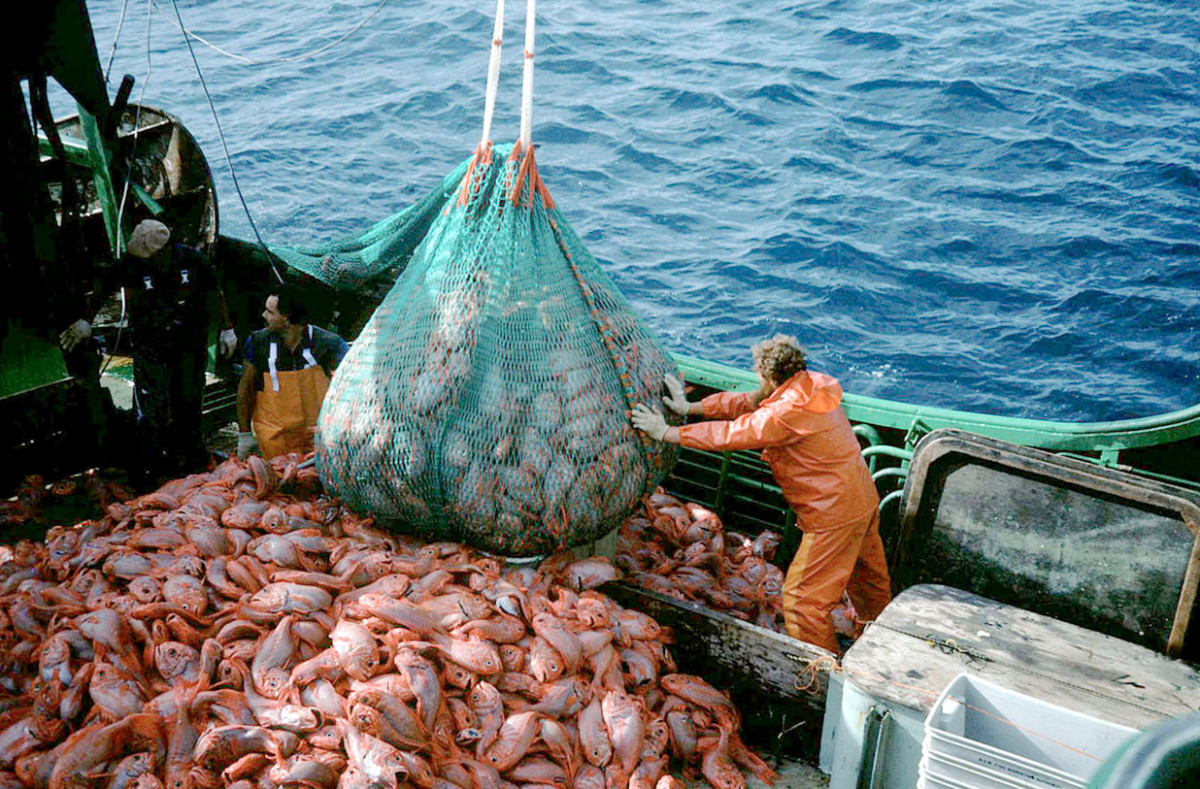The Hidden Dangers of Overfishing: A Global Concern
The world's oceans are a vital source of food, economic stability, and biodiversity. However, overfishing has become an escalating global crisis, threatening marine ecosystems, coastal communities, and food security. Driven by increasing demand and advancements in fishing technology, many fish populations are declining at alarming rates. If left unaddressed, the consequences of overfishing could lead to irreparable damage to marine life and the livelihoods that depend on it. 
This article explores the hidden dangers of overfishing, its impact on the environment and society, and the urgent need for sustainable solutions.
The Scope of Overfishing
Overfishing occurs when fish are harvested at a rate faster than they can reproduce, leading to population decline. The demand for seafood has surged due to a growing global population, resulting in excessive pressure on marine species. Industrialized fishing techniques, such as trawling and longlining, have further exacerbated the problem by enabling mass harvesting with little regard for sustainability.
Key Statistics on Overfishing
- According to the Food and Agriculture Organization (FAO), over 34% of global fish stocks are overfished, with another 60% fully exploited.
- Some species, such as the Atlantic bluefin tuna, have seen population declines of over 80% due to overfishing.
- Approximately 3 billion people worldwide rely on seafood as a primary source of protein, making overfishing a direct threat to food security.
Environmental Consequences
Overfishing disrupts marine ecosystems, leading to imbalances that can have cascading effects. Below are some of the major environmental impacts:
Biodiversity Loss
When fish populations decline, the entire food web is affected. Predatory fish like sharks and tuna are essential for maintaining balanced ecosystems. Their depletion can lead to uncontrolled growth of smaller species, which can alter the natural equilibrium.
Destruction of Marine Habitats
Destructive fishing practices, such as bottom trawling, damage delicate marine habitats like coral reefs and seabeds. This not only impacts fish populations but also affects countless other marine organisms that rely on these environments.
Bycatch and Species Extinction
Bycatch refers to the unintended capture of non-target species, including sea turtles, dolphins, and seabirds. Each year, millions of marine animals die due to indiscriminate fishing methods. This has led to the near-extinction of several species and disrupts ecological stability.
Economic and Social Impacts
Overfishing is not just an environmental issue; it carries severe economic and social repercussions as well.
Collapse of Fisheries
As fish stocks dwindle, industries that rely on fishing face economic hardships. Once-thriving fisheries have collapsed due to unsustainable practices, leaving thousands of fishermen without employment.
Threat to Food Security
For coastal communities and developing nations, seafood is a primary protein source. Overfishing reduces the availability of fish, leading to increased food prices and malnutrition among vulnerable populations.
Illegal, Unreported, and Unregulated (IUU) Fishing
Illegal fishing activities contribute significantly to overfishing. Many operators engage in unregulated practices that violate fishing quotas, further exacerbating stock depletion and economic instability in affected regions.
Solutions to Combat Overfishing
Addressing overfishing requires global cooperation, policy changes, and sustainable fishing practices. Here are some potential solutions:
Implementing Sustainable Fishing Practices
Governments and regulatory bodies must enforce sustainable quotas and encourage responsible fishing methods to prevent stock depletion.
Marine Protected Areas (MPAs)
Designating MPAs can help preserve critical habitats and allow fish populations to recover by limiting commercial fishing in specific regions.
Encouraging Sustainable Seafood Choices
Consumers play a vital role in combating overfishing by choosing sustainably sourced seafood. Certifications such as the Marine Stewardship Council (MSC) label help guide ethical purchasing decisions.
Strengthening International Policies
Stricter regulations, better enforcement, and global cooperation are necessary to address IUU fishing and protect vulnerable species.
Promoting Aquaculture (Fish Farming)
Sustainable aquaculture can provide an alternative to wild-caught fish, reducing pressure on natural fish populations while ensuring food security.
The Future of Our Oceans
The consequences of overfishing are far-reaching, affecting marine life, human economies, and future generations. Without immediate action, the depletion of ocean resources will continue to worsen, leading to severe ecological and economic consequences. Sustainable fishing practices, policy reforms, and consumer awareness are crucial in reversing the damage and ensuring that the oceans remain a viable source of life for years to come.
Conclusion
Overfishing is a pressing global issue that demands urgent attention. The depletion of fish stocks, destruction of marine habitats, and the socio-economic impact on communities are alarming signs that cannot be ignored. Governments, industries, and individuals must take collective action to ensure sustainable fisheries and protect marine ecosystems. By implementing responsible fishing practices and raising awareness, we can work towards a future where both people and marine life thrive harmoniously.
References
- FAO State of World Fisheries and Aquaculture
- National Geographic - Overfishing
- Marine Stewardship Council (MSC) - Sustainable Fishing
- United Nations - Sustainable Fisherie
- Global Fishing Watch - Transparency in Fisheries
































![[ℕ𝕖𝕧𝕖𝕣] 𝕊𝕖𝕝𝕝 𝕐𝕠𝕦𝕣 𝔹𝕚𝕥𝕔𝕠𝕚𝕟 - I Think I Have Crypto PTSD](https://cdn.bulbapp.io/frontend/images/819e7cdb-b6d8-4508-8a8d-7f1106719ecd/1)










